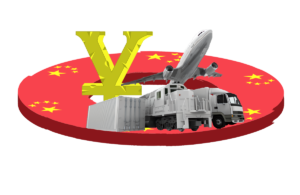Some of the topics I routinely try to address, like development and connectivity, can only be fully achieved in places there is a reasonable amount of freedom of the press. Some people believe the press has too much power. They like to point out that with dozens of humanitarian relief operations going on at any moment the one that gets the most attention by the press is the one that normally gets the most resources (the so-called “CNN effect”). In the U.S., liberals like to carp about the right wing bias of Fox News and most radio talk shows while the conservatives rant about the liberal bias of the print media (like the New York Times). Love ’em or hate ’em, however, news sources are essential in helping expose political corruption, humanitarian need, and so forth. Tyrants try to control the press and, thus, control what those under their iron-fisted rule see and hear. Reporters Without Borders just released their latest Worldwide Press Freedom Index detailing its perception of where countries rank when it comes to freedom of the press. Traditionally the Index looked primarily at mainstream sources of news, but with the rise of the World Wide Web, it now also looks at how bloggers are treated [“Crackdowns On Bloggers Increasing, Survey Finds,” by Nora Boustany, Washington Post, 17 October 2007].
“Government repression in some countries has shifted from journalists to bloggers, with the vitality of the Internet triggering a more focused crackdown as blogs increasingly take the place of mainstream news media, according to Lucie Morillon, Washington director of the advocacy group Reporters Without Borders. ‘Countries that were not sentencing journalists to prison terms anymore have been doing it these last months for bloggers. This is the case in Egypt and Jordan,’ she said yesterday as the group released its sixth annual Worldwide Press Freedom Index. Egypt ranked 146th and Jordan 122nd in press freedom among the 169 countries for which data were available.”
If you question the importance of blogs as a source of news and commentary, take the case of Iran. If the Mullahs had their way, they would control all access to information. They repress dissent in every possible way from passing laws to sending out thugs as morality police to harass or assault so-called offenders. As a result, blogs have become a major source of news and political expression. According to Nasrin Alavi, author of the interesting volume We Are Iran, “Farsi is the fourth most frequently used language for keeping on-line journals. There are more Iranian blogs than there are Spanish, German, Italian, Chinese or Russian. According to the 2004 NITLE Blog Census, there are more than 64,000 blogs written in Farsi. A phenomenal figure, given that in neighboring countries such as Iraq there are fewer than 50 known bloggers.” The Index confirms, Boustany reports, what most of us know intuitively — democracies have more freedom of the press.
“Reporters Without Borders said major industrialized countries, including the United States, made slight progress, moving up several notches, with the exception of Russia. Iceland topped the list for press freedom in the survey, and Eritrea ranked last. While not all press freedom violations were known in the countries ranked second and third from the bottom — North Korea and Turkmenistan — ‘Eritrea deserves to be at the bottom,’ the group said. Eritrean President Isaias Afwerki has banished privately owned press outlets and jailed the few journalists who have dared criticize the government, it said. ‘We know that four of them have died in detention and we have every reason to fear that others will suffer the same fate,’ the group added. Most democracies improved their ranking, with the United States moving up to 48th place from last year’s 53rd, Morillon said.”
America’s ranking at 48 sounds pretty low for a country that enshrines freedom of the press in its Bill of Rights. Here’s why the U.S. ranked so low:
“The reason the United States did not make the top 30 is because videographer and blogger Josh Wolf spent almost eight months in jail for not turning over video footage of a demonstration in San Francisco and because the confidentiality of sources is under continued attack, she said. Cameraman Sami al-Hajj, from al-Jazeera satellite television, is still being held without charges at the U.S. detention facility at Guantanamo Bay, Cuba, and journalist Chauncey Bailey was killed in Oakland, Calif., after his coverage made him a target.”
Although it could be better, the U.S. ranking is not as bad as it sounds. There are less than 14 points separating the U.S. from the Iceland at the top of the list, whereas there are more than 100 points separating the U.S. from Eritrea at the bottom of the Index. According to Boustany, the only region that has been spared from censorship or violence against reporters is Europe. Although freedom of the press is difficult to find at the Edges of Globalization where I’m trying to implement the Enterra Solutions® Development-in-a-Box™ framework, encouraging more openness is essential to its success. Connectivity is a critical for helping emerging market countries attract foreign direct investment. Eliminating corruption is also important. A free press demonstrates an effort is being made in both areas.




